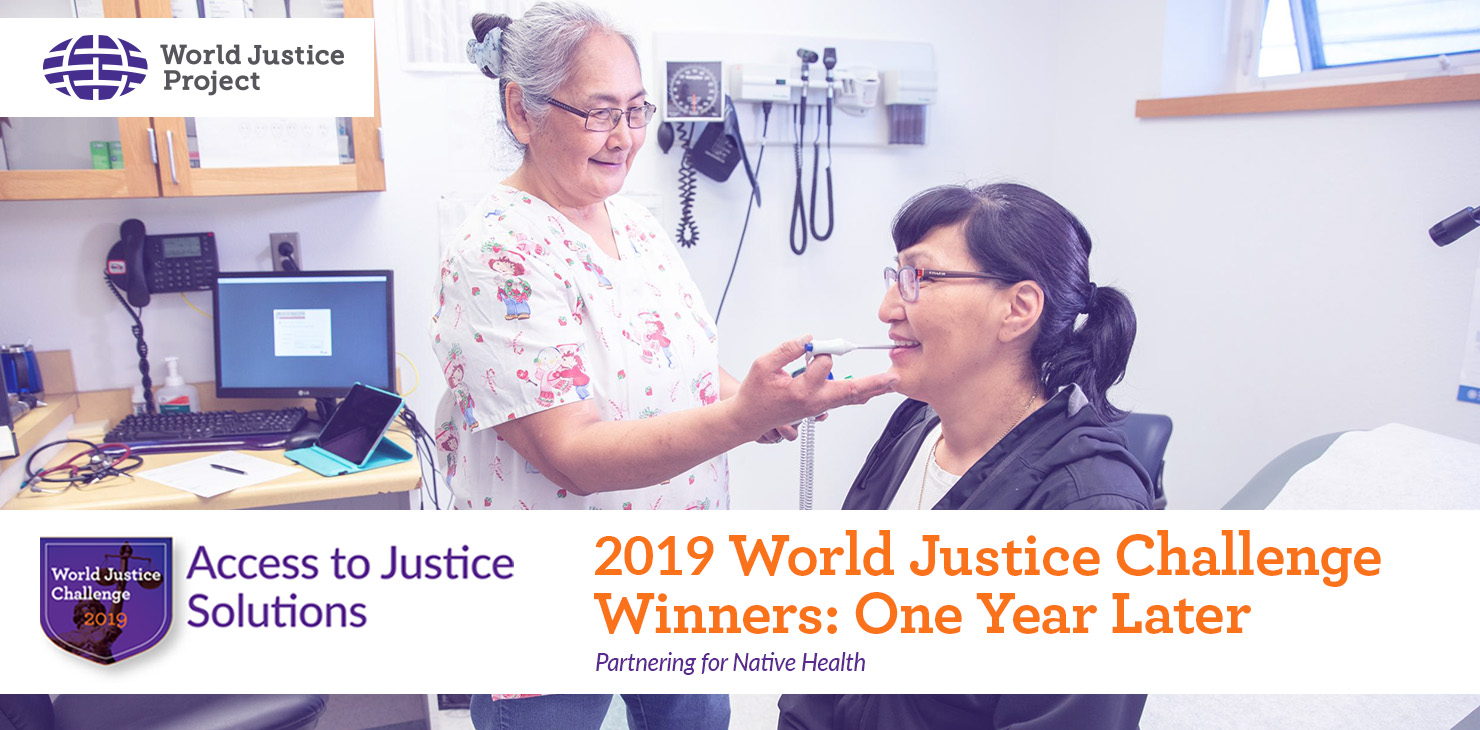


Indigenous populations throughout the United States experience some of the greatest health inequalities. This Partnering for Native Health project (PNH) is the first U.S. collaboration to combine health services and civil legal assistance to a target population of economically vulnerable indigenous individuals, specifically targeting remote and rural areas. PNH addresses indigenous peoples' social determinants of health by using legal empowerment and education as a tool to improve the health and safety of indigenous people living within the U.S., and establishing culturally-appropriate and locally-based networks of civil legal advocates embedded in the tribal health care delivery system.
What has changed for the Partnering for Native Health project in the last year?
Over the course of the past year, the project has focused on building comprehensive training modules for non-attorney legal extenders with the goal to assign legal cases to community-based, trained legal extenders supervised by a hub community attorney. The first module was completed in September 2019 and since then the project has seen a steady flow of volunteers looking to help their community.
Additionally, Alaska Legal Services is working to include culturally-appropriate content into the modules, placing western legal concepts into a more culturally-relevant framework. At the end of each module, students receive a certificate of completion and are automatically connected with Alaska Legal Services to integrate into the workflow of incoming cases from their community.
What challenges has the project faced?
The COVID-19 crisis has placed a particular kind of stress on the project's tribal healthcare partners, which has meant that it has had to pull back and readjust development timelines. On the other hand, skyrocketing unemployment rates means that the legal needs of the community have been exacerbated due to the resulting economic distress.
This has led to a shift in activities to respond to the crisis, and the development of a supplemental course for the project's growing network of legal extenders in how to assist others in their community with accessing unemployment insurance and appealing denials, as well as providing community legal education on housing and utility rights during this pandemic.
How has winning the 2019 World Justice Challenge made an impact on the project?
The award money has been used to build a sustainable infrastructure for curriculum development, and supporting the network of legal extenders who enroll in and complete the learning modules.
"Participating in the World Justice Forum helped us better understand that the challenges we face as a community in the delivery of civil legal aid are not necessarily unique to us. Granted our communities are incredibly remote, small, and there are extreme service delivery challenges that make our circumstances a bit different, but there is a certain commonality across the globe on these issues. It has been wonderful to connect with peers to share ideas and we appreciated the opportunity to have our ideas elevated."
Learn more about the Partnering for Native Health project in WJP's Program Library and listen to our Rule of Law Talk podcast episode on "Indigenous Communities and COVID-19: Local Challenges and Resilient Strategies for Building Back Better."
The winning projects of the World Justice Challenge 2019: Access to Justice Solutions were among 30 finalists chosen from over 250 applications from around the world at the World Justice Forum in The Hague. They each represent innovative efforts to bring justice to individuals and communities that have seen little of it in the past. We are pleased to share their latest work and encourage the rule of law community to participate in our upcoming World Justice Challenge 2021. Stay tuned for a 2021 Challenge announcement coming this fall.